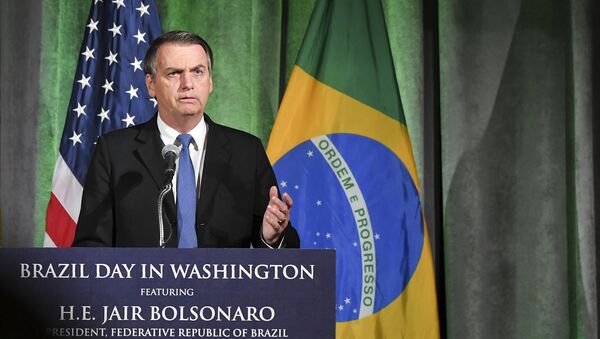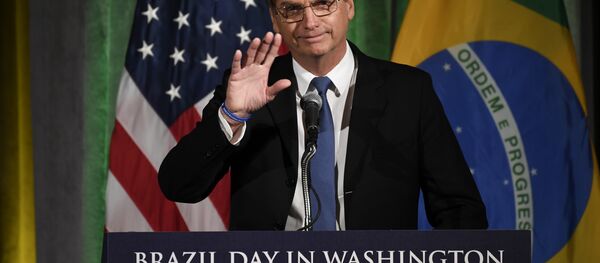Sputnik: It has been revealed that the two countries have signed an agreement that makes it possible for US companies to fly planes and launch spacecraft from the Brazilian Air Force's Alcantara Launch Centre (ALC) in the northeast of the country. In which other technological/economic spheres could the two countries cooperate?
Cedê Silva: Under the agreement, Brazil will essentially rent the Alcantara Launch Centre for Americans to launch nonmilitary rockets. Alcantara is very close to the Equator which makes launching rockets from there much cheaper. It is a positive agreement for both sides since the Launch Centre is currently underused and the Brazilian space program is still underdeveloped. Brazil scrapped an agreement with Ukraine in 2015 under which Ukraine would use Alcantara to launch rockets with commercial satellites. It is important to note that the new agreement will still be submitted to Congress on both countries.
As for others spheres, Brazil and the US have straightened their ties on cooperation on military technology. For instance, then-Secretary of Defence Jim Mattis visited Brazil in August 2018, and US and Brazilian intelligence cooperated in advance of the Olympic Games in Rio in 2016 to thwart a terrorist attack. Furthermore, Brazil and the US have a lot of room to increase their bilateral trade, despite being competitors in some key markets, such as both being agricultural superpowers selling soy to China.
READ MORE: Brazil's Bolsonaro to Meet With Trump In First US Visit Amid Venezuelan Crisis
Sputnik: During his trip to Washington, Bolsonaro visited the CIA headquarters. Could this be connected with ongoing discussions regarding the Venezuelan crisis and what the next steps for the US and Brazil will be?
Cedê Silva: We can only speculate on what was discussed during the visit to the CIA. So far, Brazil has a strong non-military intervention stance in Venezuela and I don't see any reason this would change. There's no interest for Brazil to risk its soldiers in order to force a regime change in Venezuela. What's more concrete is that our Justice minister Sergio Moro visited the FBI and signed an agreement for the mutual exchange of biometric data. So the two countries are improving their cooperation on fighting crime.
Sputnik: Donald Trump claimed that he will look "very, very strongly" at supporting Brazilian NATO membership. Would this increase the potential for military confrontation between Brazilian and Venezuelan forces?
Cedê Silva: So far, Brazil has been invited to become what NATO calls "Partners across the globe", a status which includes countries such as Colombia and Japan and grants preferential access to purchase US military equipment and technology. This also includes training, exercises, and the support for a few operations such as to counter piracy, but does not make them full-fledged members. President Trump did say he would "talk to a few people" to see Brazil becoming a full NATO member but this is far-fetched, from all sides. Once again, no matter the result, I don't see any potential for military confrontation between Brazilian and Venezuelan forces because Brazil has no interest in risking blood and treasure for regime change in Venezuela.
Sputnik: What are the expectations of ordinary Brazilians from Bolsonaro's trip to the US? How are Bolsonaro's economic advisers planning to reform the Brazilian economy?
Cedê Silva: From my experience working closely on this question, what most Brazilians would like to see is a visa waiver for tourists to visit the US, which is very unlikely to happen, if ever. The ordinary Brazilian will be happy if the unilateral visa waiver President Bolsonaro just granted to Americans and a few other nationalities helps bring tourists and create jobs in Brazil. Regarding the second question, our Economy Minister Paulo Guedes recently presented to Congress a very ambitious pension reform, which is necessary for Brazil not to become the next Greece. The debate will be intense because we have an elite caste of wealthy public workers who oppose it, but hopefully, Brazilians will push their elected officials to approve it this year.
One big victory President Bolsonaro will bring back home is President Trump's support for Brazil to join the OECD, a longstanding Brazilian ambition. Soon Brazil will have larger seat on the table where several important public policies are discussed.
The views expressed in this article are those of the speaker and do not necessarily reflect those of Sputnik.



